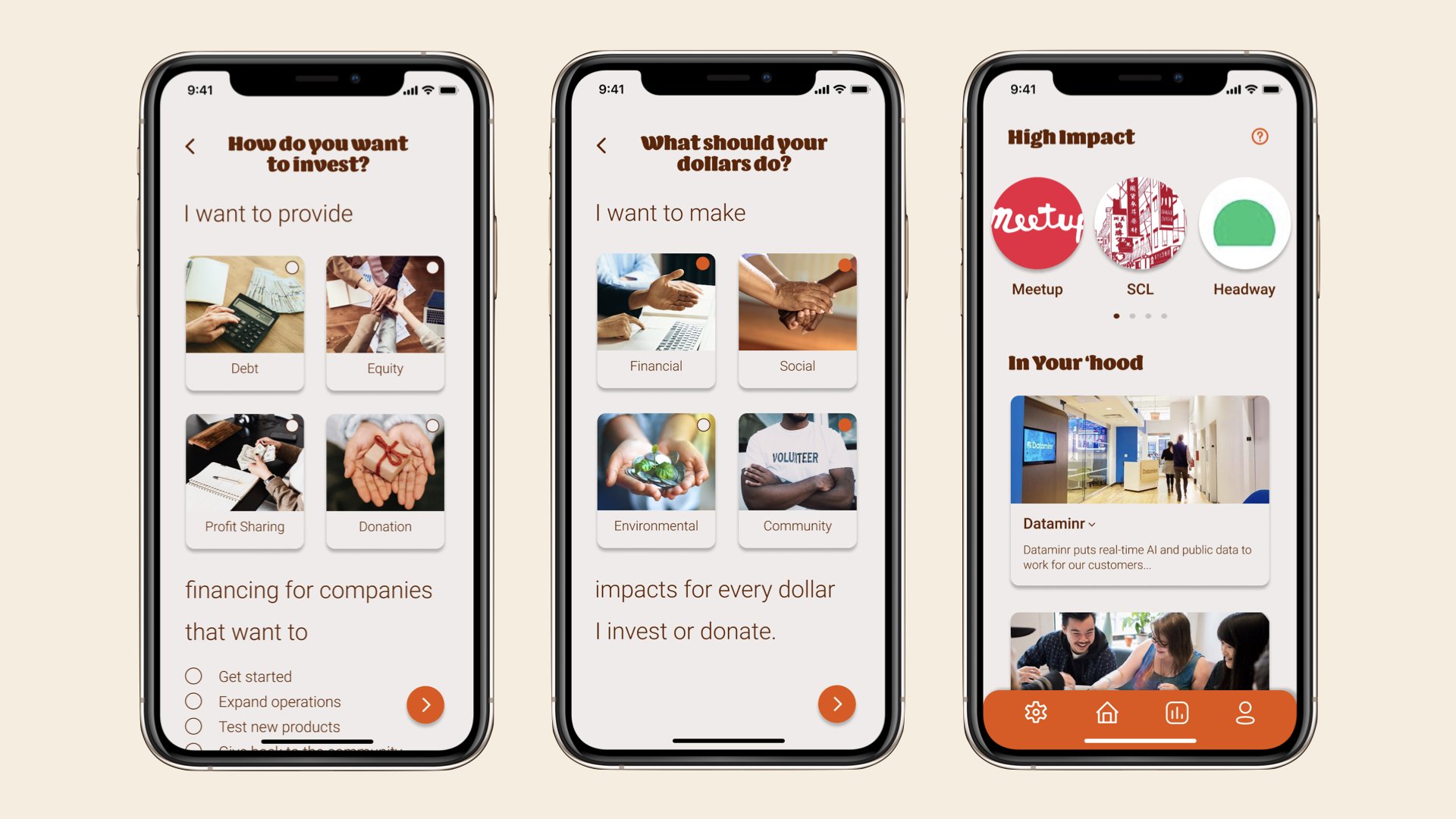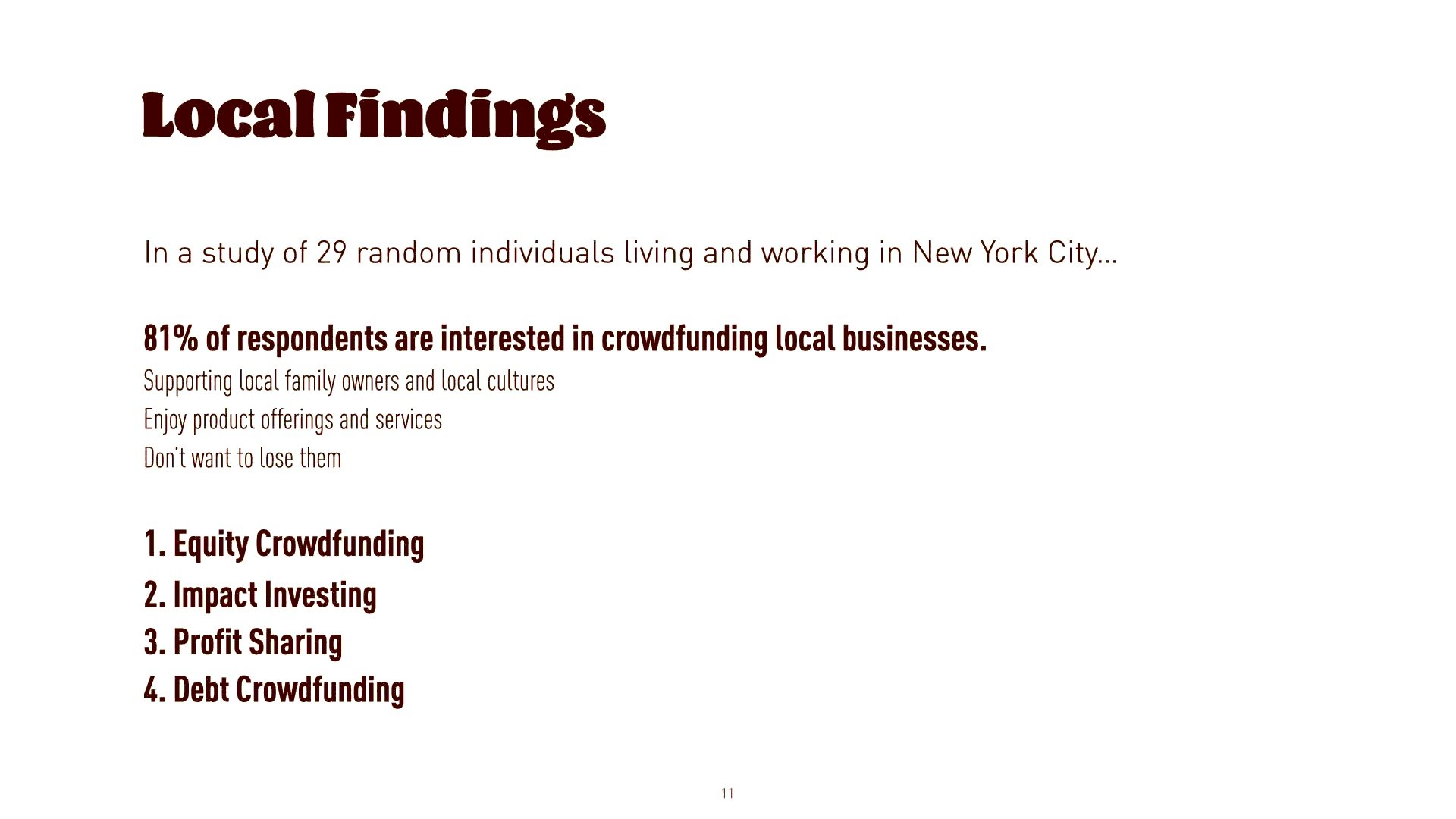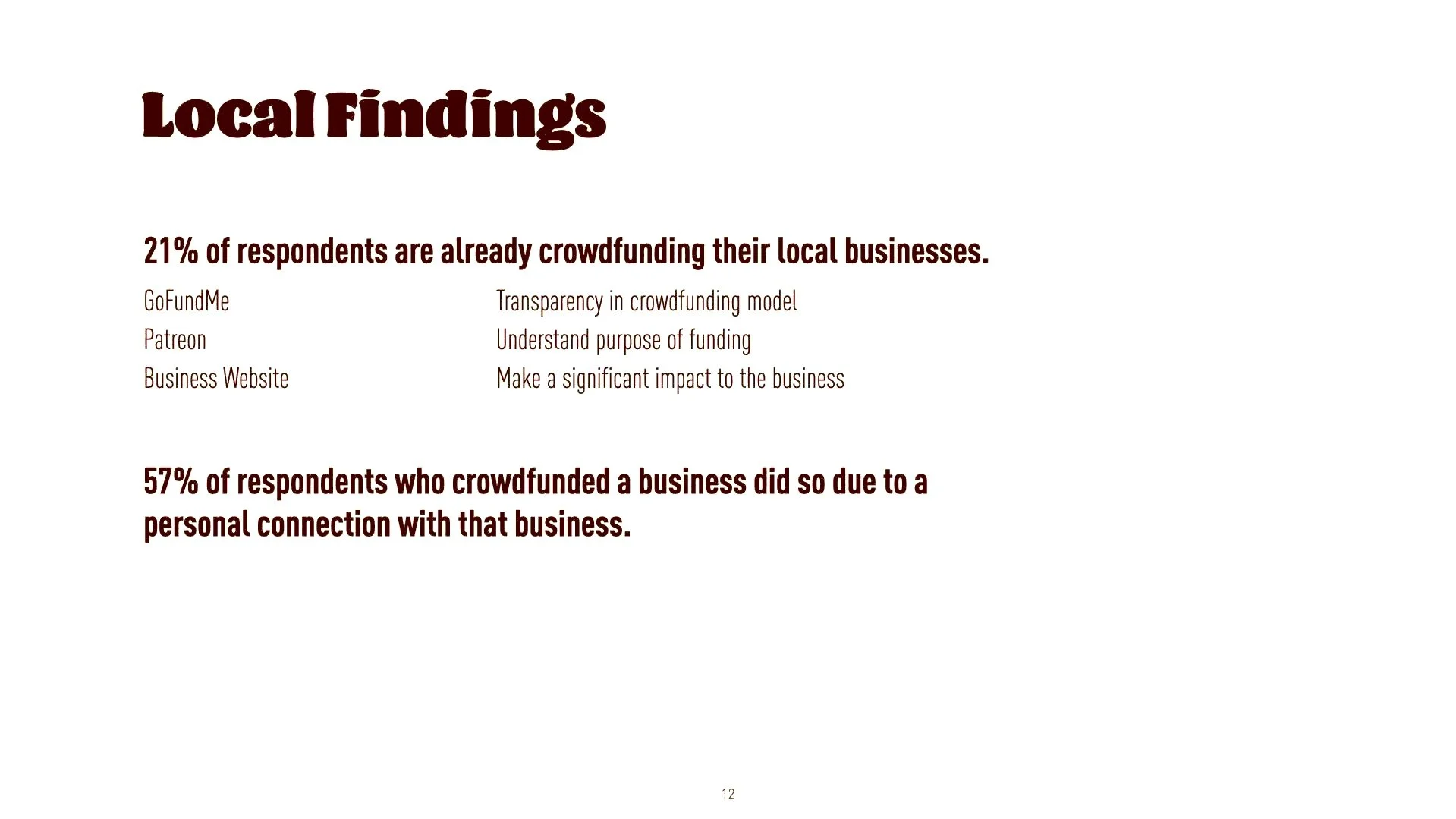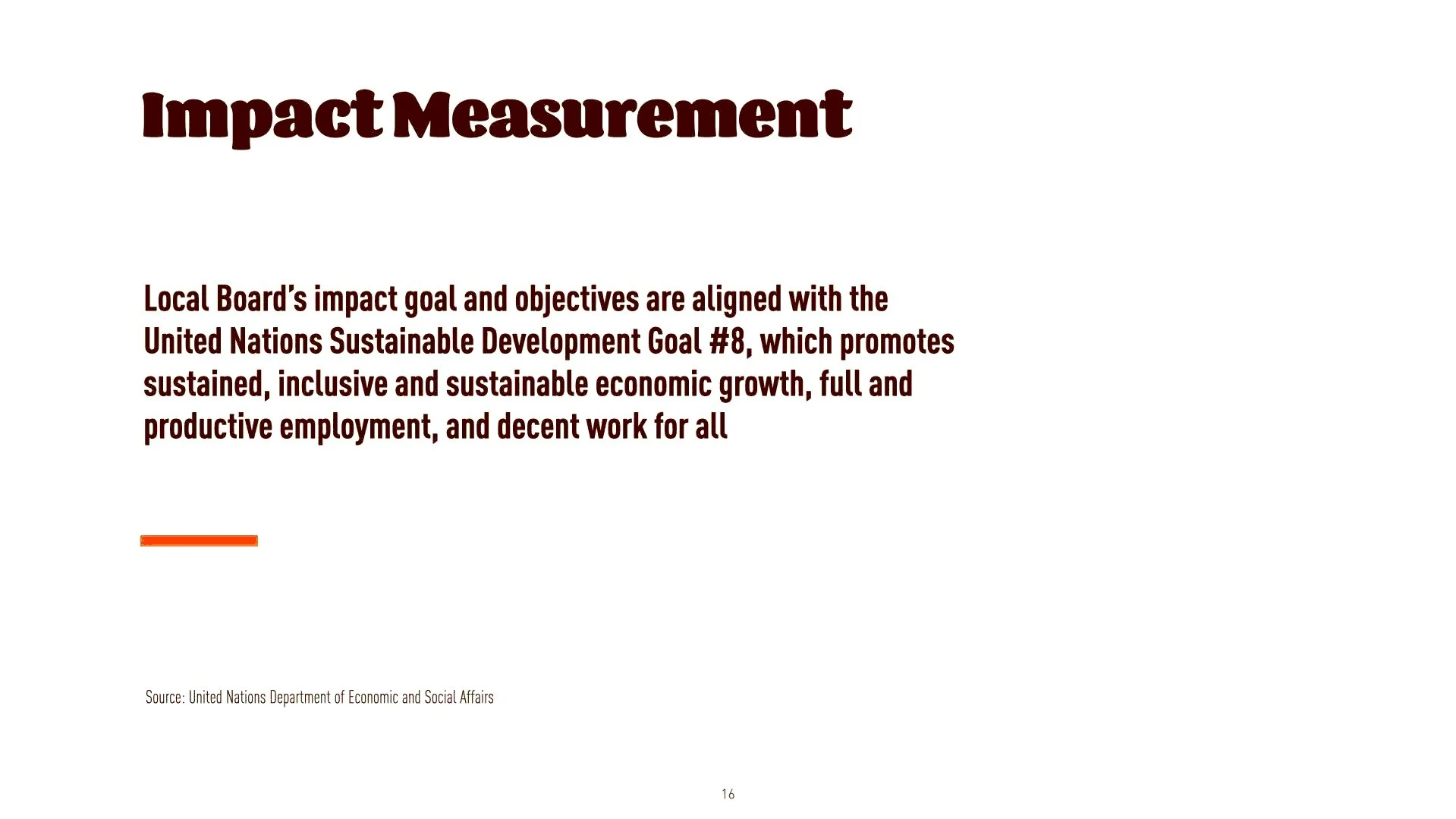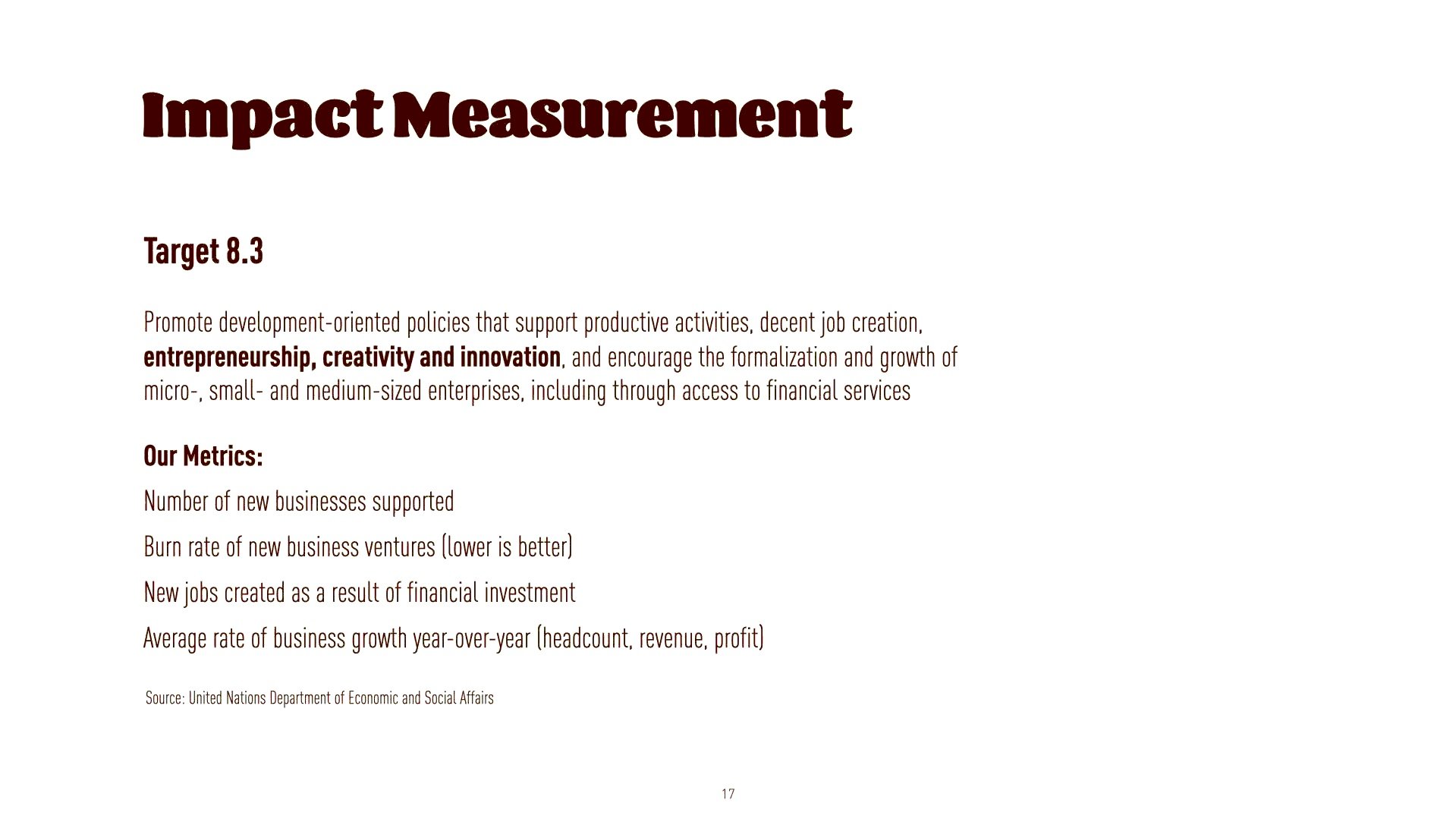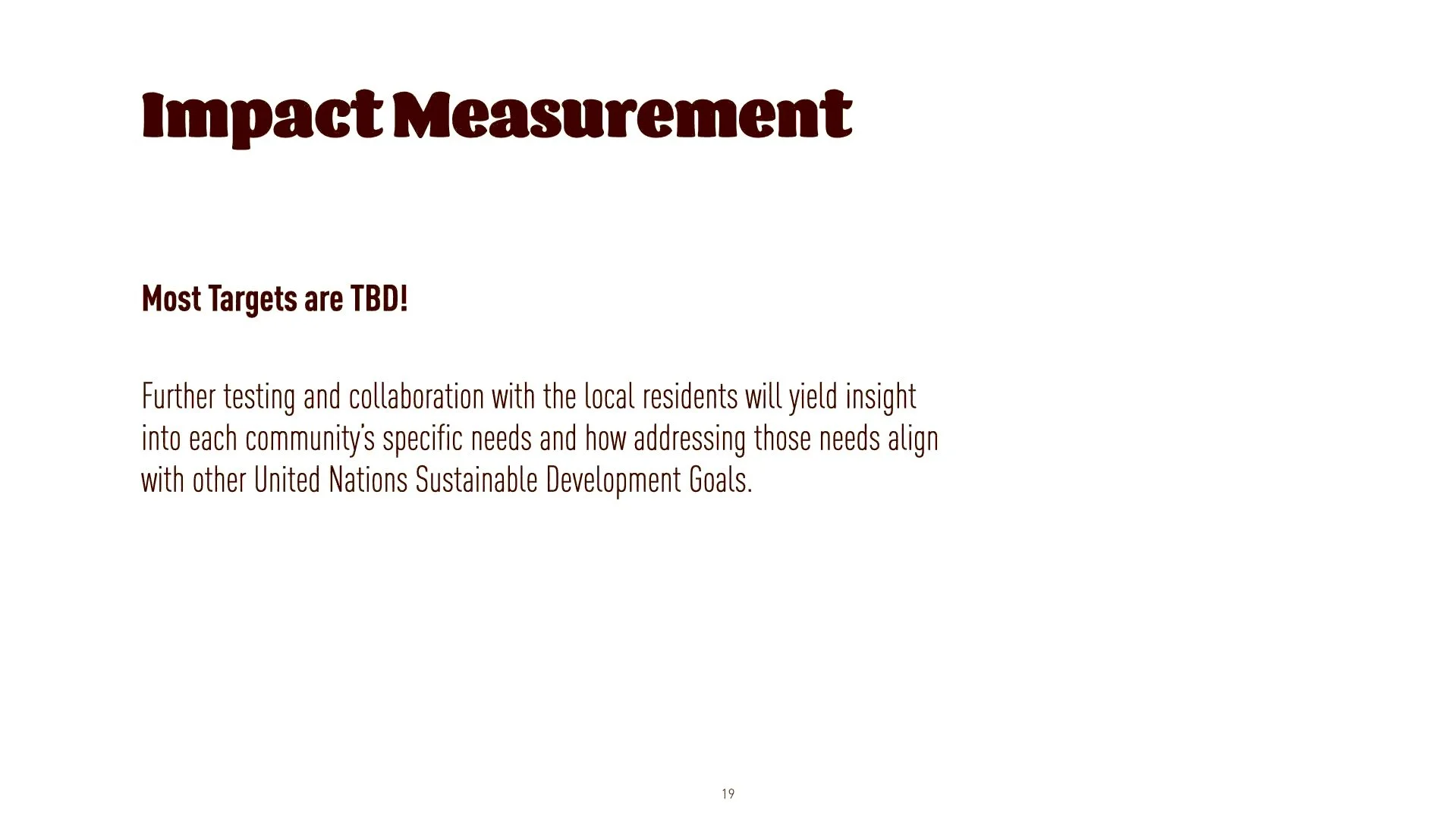Local Board
2022 Fast Company World Changing Ideas Finalist
2021 NYC[x] Moonshot: Financial Inclusion Challenge Finalist
The Vision for Change
Local Board is an alternative financial market that helps people invest in small businesses near them.
Blending the capital raising ability of capital markets with the social impact of a community board, Local Board is a digital investment platform that creates a market where investors can earn competitive returns by financially supporting local, privately held businesses.
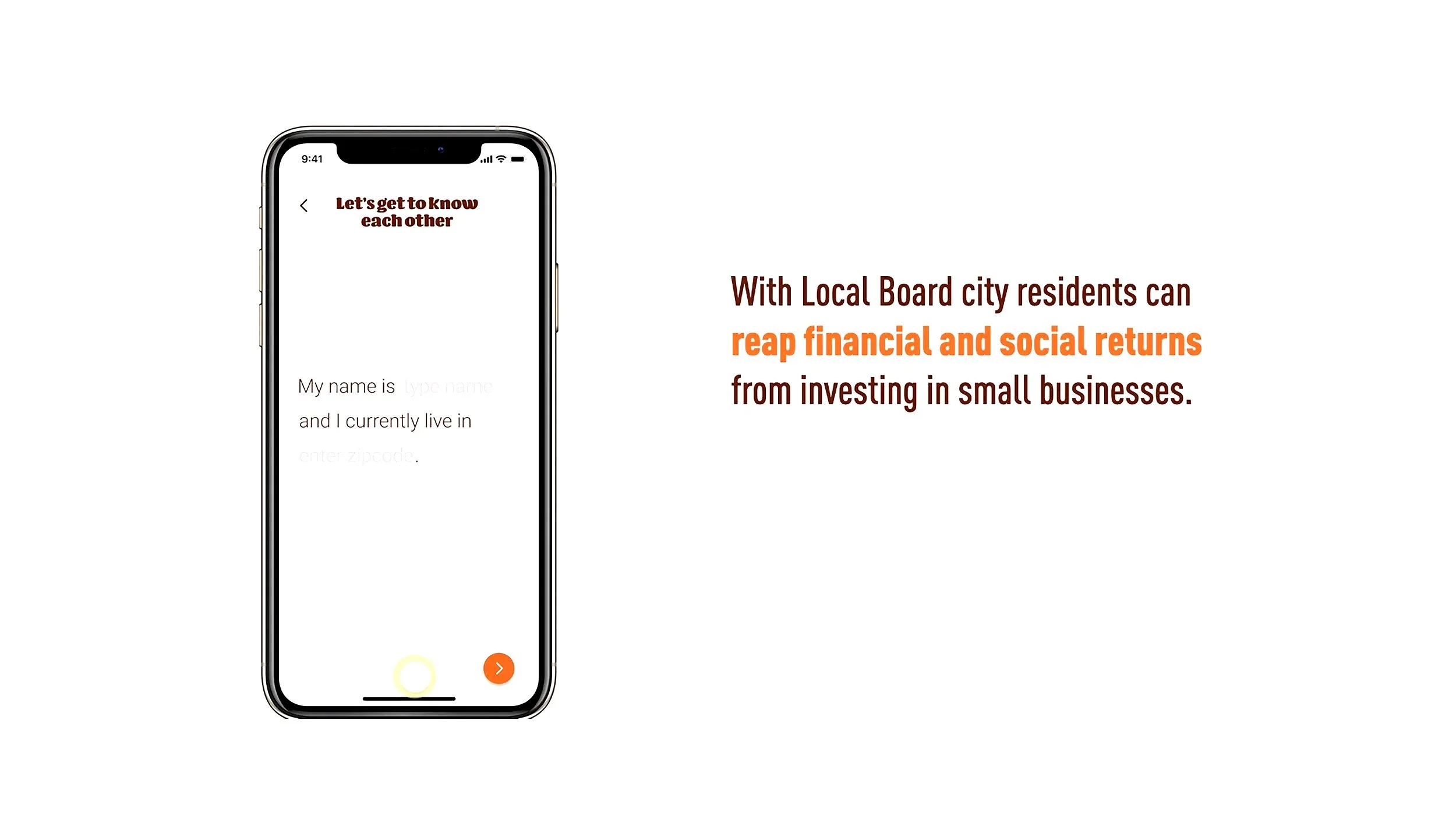
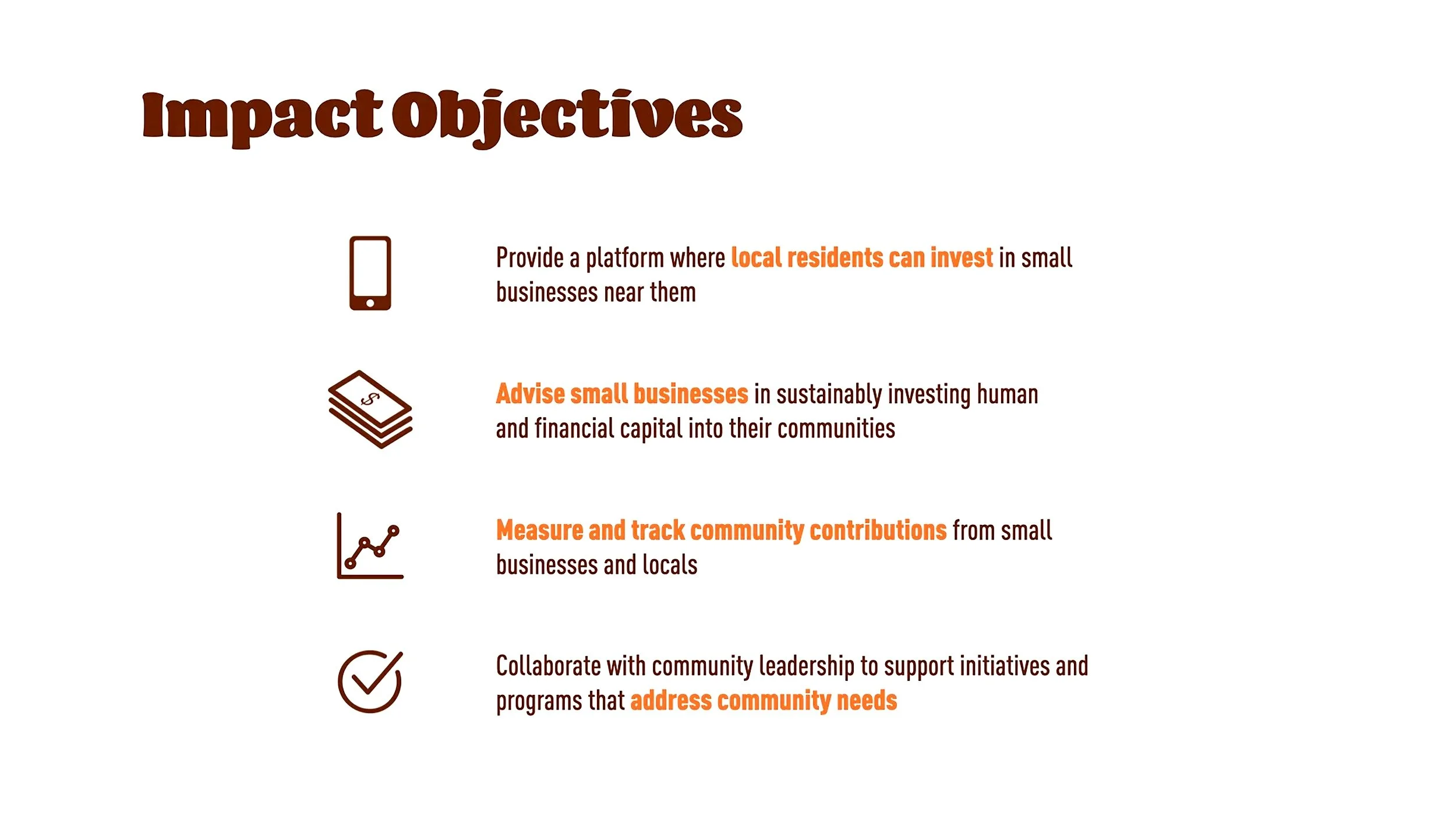
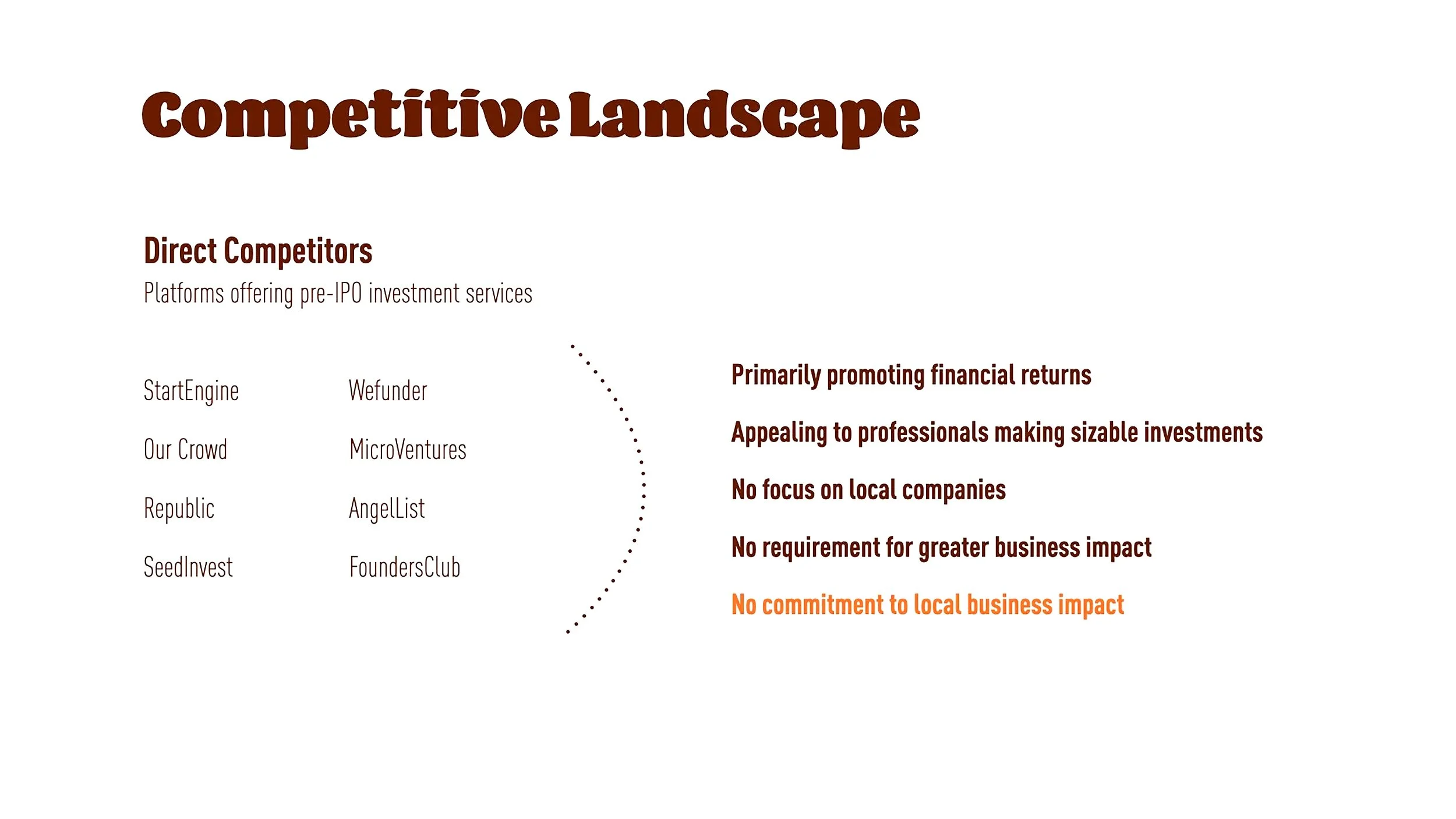
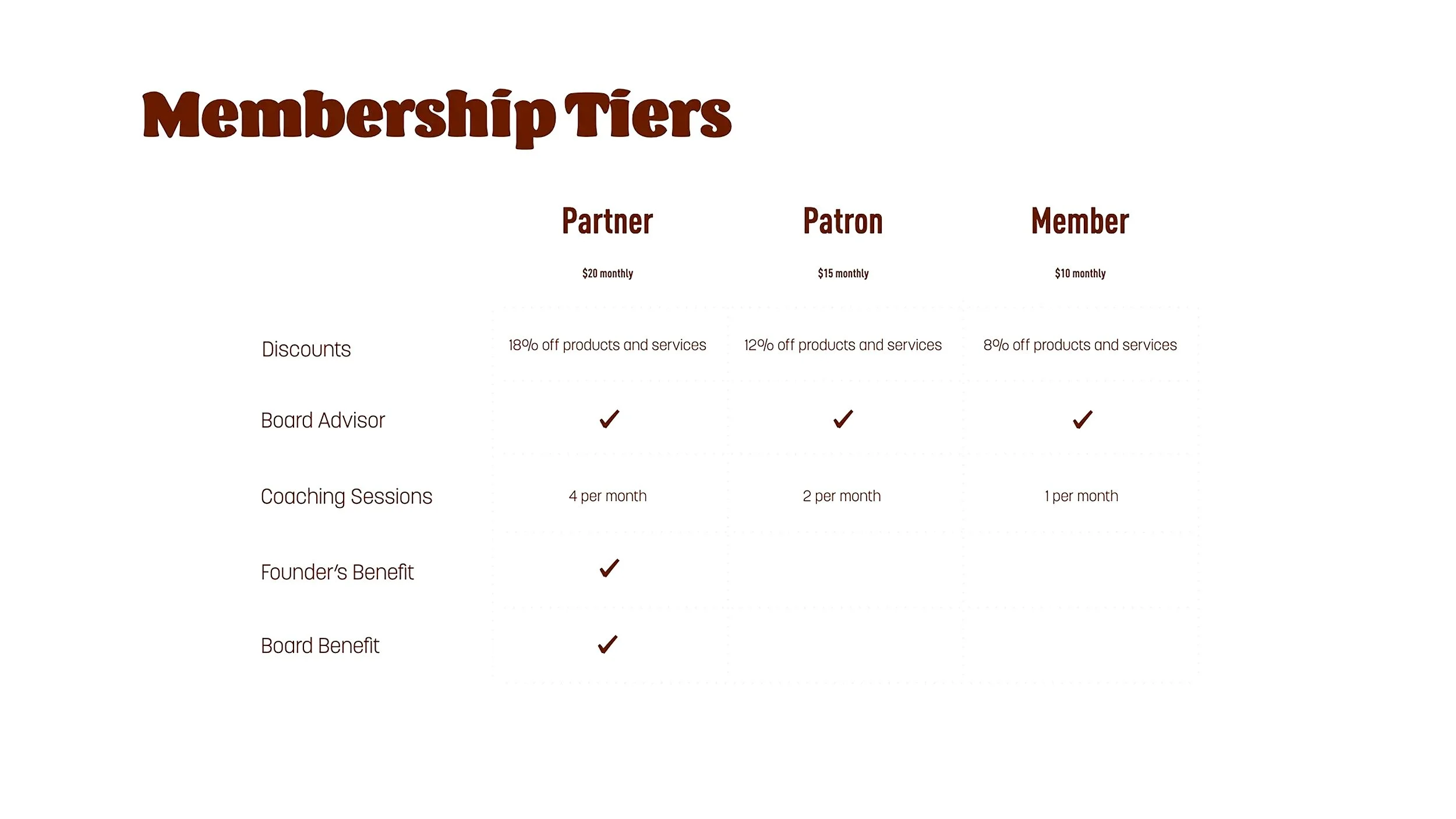
The steps
Competitive Audit
Analogous Audit
2 Logic Modeling Sessions
1 Assumption Discovery Session
2 Impact Ideation Sessions
1 Market Discovery Session
2 UI Sketching Sessions
2 UI Prototyping Sessions
The tools
Miro
Figma
Maze
Keynote
The driving insight
The concept for Local Board stems directly from the product development process I undertook while crafting another concept, The Regulars. While developing The Regulars, I designed and implemented a mixed methods research protocol to gather an understanding of how New Yorkers relate to their neighborhood businesses. Through this process, I learned that New Yorkers are quite interested in financially supporting local businesses, especially ones that they can interact with daily.
Respondents reported being familiar with crowdsourcing, with many people having participated in funding businesses and products through platforms like GoFundMe, Patreon, Indiegogo, and others. From such results, I envisioned a future where small businesses other than restaurants, bars, and cafes could grow and expand by building rapport with and receiving funding from people in their neighborhood. Local Board serves as the first iteration of a product offering designed not only to help companies get the funding they need to expand, but also to embed those companies in their communities by helping them systematically reinvest a portion of locally-raised funds in the community.
addressing intergenerational poverty
Local Board addresses the roots of systemic, intergenerational poverty by reframing entrepreneurship, which is traditionally viewed as a risky endeavor, as an attainable path toward financial freedom.
Coming from a low-income inner city neighborhood myself, I understand how hard it can be for people lacking skills sought by large corporations to find work to support themselves and their families. However, I believe that every person has a collection of skills and talents that can be combined in a unique way to create value and income. It is with this spirit that Local Board reimagines entrepreneurship, presenting it as a path that people with expertise in trades and vocations can take to elevate themselves and their communities.
Most notably, Local Board makes entrepreneurship a community sport. Instead of perpetuating the perception that successful entrepreneurs are geniuses with rich friends, Local Board proves that successful entrepreneurs are the ones that create value for the people around them and that even micro-investments of $10 or $20 can make an impact.
Local Board contends that neighborhoods already have what it takes to grow and bolster themselves by helping residents strategically invest funds directly into communities. Its agenda is to support existing businesses with the financing needed to expand and to show first-time founders that running a business with the support of your community is a sustainable and profitable endeavor. Local Board gives contributors a clear call to action and a simple mechanism to take their neighborhood’s profitability and economic health into their own hands.
how i grew
Concepting and refining Local Board was an iterative process that forced me to flex and integrate both my financial and design skillsets in ways that propelled both of them forward. This was, of course, incredibly uncomfortable. There were times where I found myself getting bogged down with the details of the market design (which I am sill, and may always be, refining) and times where I found myself nitpicking the visual identify and interface design.
Simultaneously pushing these two vastly different skillsets to the extreme reinforced the importance of prototyping, testing, and refinement in any design process, and especially when designing impact-based products and services. To make something that resonates with people and accommodates not only their needs and pain points, but also their emotions and perceptions, we must constantly volley between all of our skills. If we do not, we run the risk of creating something inconsequential.
Local Board presents entrepreneurship as a community sport and a viable avenue out of intergenerational poverty. To focus more on the financial implications of this service, for both individuals and communities, would discount the role that people’s thoughts and feelings about entrepreneurship might play in their willingness to participate. Likewise, to focus more on the human experience and psychology would promote a product design that might not be financially or legally possible. In both cases, the result is the same: if no one wants the service or if the service cannot legally exist, then the impact it makes becomes zero.
Finding the point where the financial implications of Local Board intersect with the lived experience of the people it serves will be an iterative process, and that point will certainly change over time. This excites me! I look forward to continually exploring the role of entrepreneurship in addressing intergenerational poverty and community resilience.
